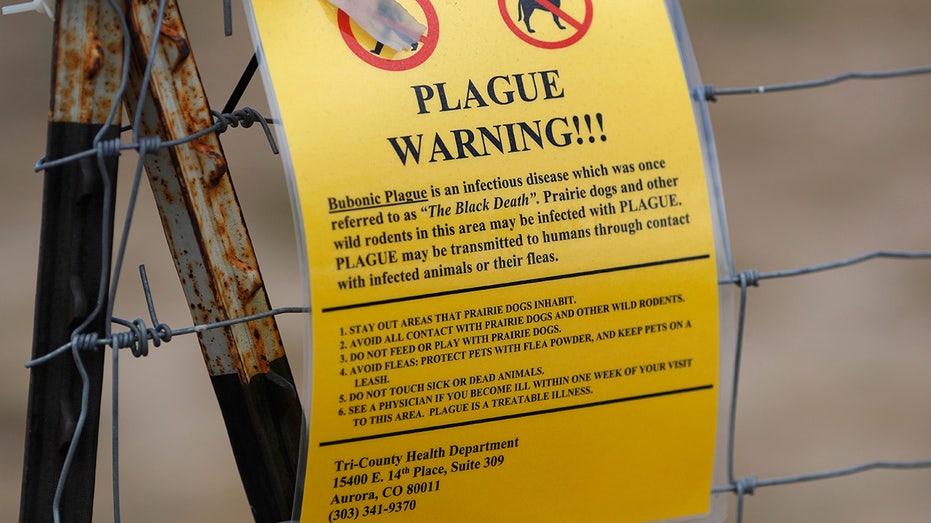📰 These 4 common food types could make you smell bad, experts caution

The article discusses how topics like body odor and the impact of certain foods on scent have gained attention on social media. Experts highlight that body odor is influenced by skin bacteria and sweat breakdown, with certain foods like seafood and cruciferous vegetables affecting body scent. Rare conditions like trimethylaminuria can cause a fishy odor after consuming specific foods. Spices like curry and cumin, as well as red meat, can also impact body odor. Making dietary changes, such as reducing sulfur-rich foods and increasing water intake, can help mitigate body odor. Additionally, maintaining good hygiene practices and supporting metabolic health through sleep, stress reduction, and exercise can improve overall body odor.
📰 Arizona resident dies of pneumonic plague, the first deadly case in area in nearly 20 years

An Arizona resident in Coconino County died of pneumonic plague, the first such death in the area in nearly 20 years. Pneumonic plague is the deadliest form of the disease, affecting the lungs. The disease is most commonly found in rural areas of northern New Mexico, northern Arizona, southern Colorado, California, southern Oregon, and western Nevada. While the plague killed millions during the Black Death, it is now easily treated with antibiotics. The disease is usually transmitted through flea bites or contact with infected animals, and can even spread person-to-person through the air.
📰 Popular back pain medication linked to brain health risks in some patients

A recent study published in the journal Regional Anesthesia & Pain Medicine suggests a potential link between the painkiller gabapentin and an increased risk of dementia and mild cognitive impairment (MCI), particularly in younger age groups. The research team analyzed data from TriNetX, a health research network, and found that individuals who had received six or more gabapentin prescriptions were more likely to be diagnosed with dementia or MCI within 10 years of their initial pain diagnosis. The study focused on adults prescribed gabapentin for chronic lower back pain between 2004 and 2024, comparing them to those who had not received the drug. The risk of developing dementia or MCI was higher in age groups between 18 and 64, with risks increasing with the frequency of gabapentin prescriptions. However, the study had limitations, and researchers emphasized the need for close monitoring of adult patients taking gabapentin to assess potential cognitive decline.
📰 ‘I’m a cardiologist – here’s how the summer heat could damage your heart’

Extreme summer heat can have a significant impact on heart health, especially for individuals with pre-existing conditions. Cardiologist Adedapo Iluyomade highlights that hot weather causes the heart to work harder, leading to increased oxygen demand and potential strain. Heat can also result in dehydration and blood-thickening, exacerbating heart-related symptoms. Studies suggest that even slight increases in core temperature can raise heart rates significantly, increasing the risk of cardiovascular events. Iluyomade recommends precautions such as staying hydrated, avoiding outdoor activities during peak heat, and being aware of warning signs of heat-related cardiac stress, even for those without existing heart issues.
📰 Joe Biden’s osteopathic doctor pleads the Fifth on mental acuity: DO vs MD

The article discusses the appearance of Joe Biden’s former personal physician, Kevin O’Connor, DO, in front of the House Oversight Committee, where he invoked the Fifth Amendment to most questions. The difference between a Doctor of Osteopathic Medicine (DO) and a Doctor of Medicine (MD) is explored, with both types of doctors having similar capabilities in diagnosing and treating patients. DOs focus more on the mind-body-spirit connection and holistic medicine, while MDs also provide whole-person care. The training and approach of DOs were developed in 1892 by physician Andrew Taylor Still, leading to the establishment of osteopathic medicine schools in the U.S. The number of DOs in the U.S. has been increasing, with many practicing family medicine, internal medicine, and pediatrics.
In summary, the article highlights the controversy surrounding Kevin O’Connor’s appearance before the House Oversight Committee, the similarities and differences between DOs and MDs, the history and training of osteopathic medicine, and the increasing number of DOs in the U.S.
0개의 댓글